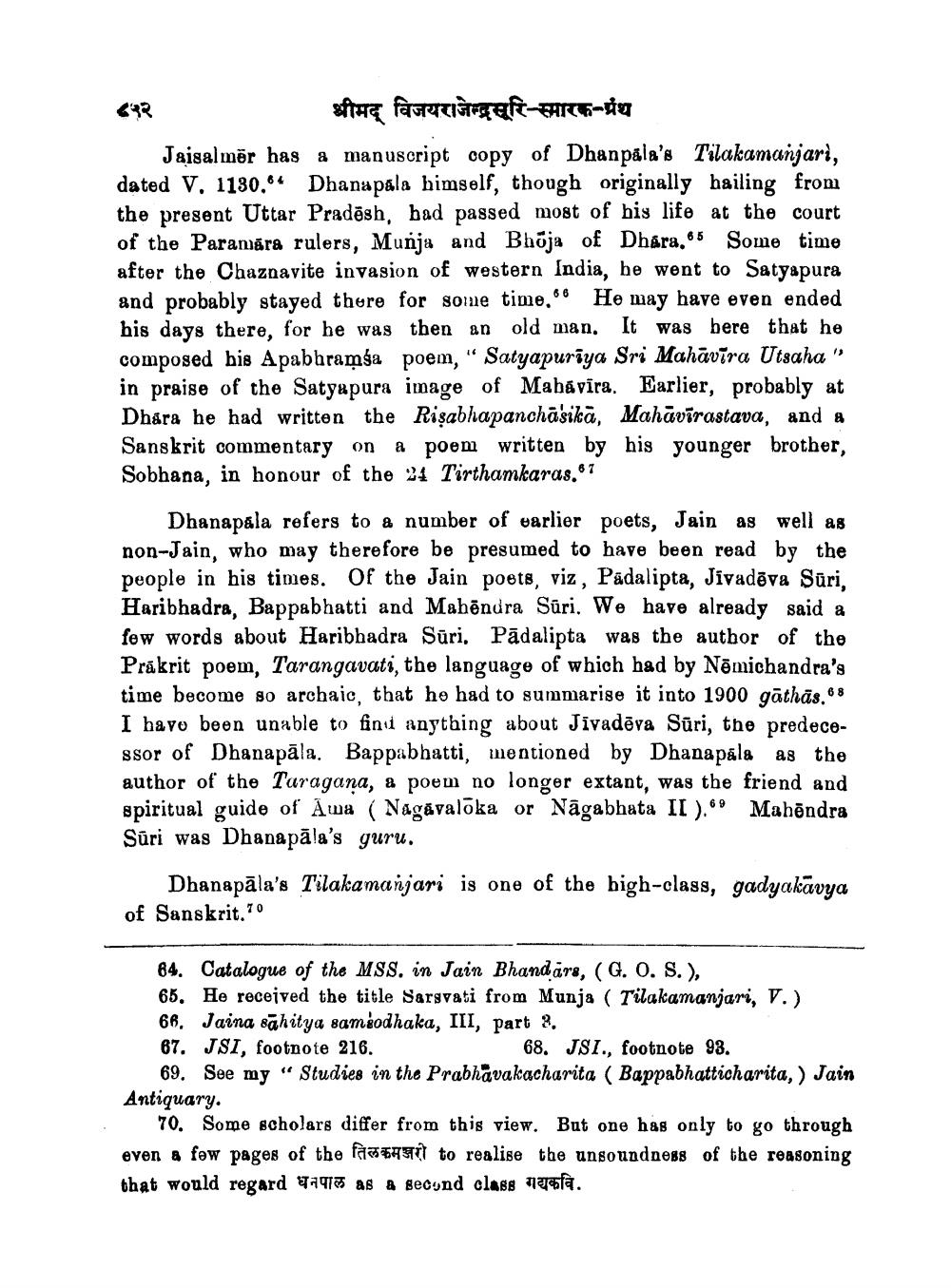________________
श्रीमद् विजय राजेन्द्रसूरि - स्मारक - ग्रंथ
Jaisalmer has a manuscript copy of Dhanpala's Tilakamanjari, dated V. 1130. Dhanapala himself, though originally hailing from the present Uttar Pradesh, had passed most of his life at the court of the Paramara rulers, Munja and Bhoja of Dhara. Some time after the Chaznavite invasion of western India, he went to Satyapura and probably stayed there for some time."" He may have even ended his days there, for he was then an old man. It was here that he composed his Apabhramsa poem, "Satyapuriya Sri Mahavira Utsaha" in praise of the Satyapura image of Mahavira. Earlier, probably at Dhara he had written the Risabhapanchasika, Mahāvīrastava, and a Sanskrit commentary on a poem written by his younger brother, Sobhana, in honour of the 24 Tirthamkaras.67
८२२
Dhanapala refers to a number of earlier poets, Jain as well as non-Jain, who may therefore be presumed to have been read by the people in his times. Of the Jain poets, viz, Padalipta, Jivadēva Sūri, Haribhadra, Bappabhatti and Mahendra Sūri. We have already said a few words about Haribhadra Sūri. Pādalipta was the author of the Prakrit poem, Tarangavati, the language of which had by Nemichandra's time become so archaic, that he had to summarise it into 1900 gāthās.68 I have been unable to find anything about Jivadēva Sūri, the predecessor of Dhanapāla. Bappabhatti, mentioned by Dhanapala as the author of the Taragana, a poem no longer extant, was the friend and spiritual guide of Ama (Nagavalōka or Nagabhata II). Mahēndra Sūri was Dhanapala's guru.
69
Dhanapāla's Tilakamanjari is one of the high-class, gadyakavya of Sanskrit.70
84. Catalogue of the MSS. in Jain Bhandars, (G. O. S.),
65. He received the title Sarsvati from Munja ( Tilakamanjari, V.)
66. Jaina sahitya samsodhaka, III, part 2.
67. JSI, footnote 216.
68. JSI., footnote 93.
69. See my "Studies in the Prabhavakacharita ( Bappabhatticharita,) Jain Antiquary.
70. Some scholars differ from this view. But one has only to go through even a few pages of the fato realise the unsoundness of the reasoning that would regard धनपाल as a second class गद्यकवि.




